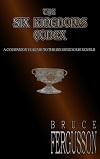It’s time for it all to go, all the writerly detritus from a time when King Paper still ruled. Oh, there will be more, from books as yet unwritten, but there has to be room for it, and presently there isn’t.
There are far too many apple boxes filled with: drafts of the seven novels written so far, and two that I abandoned early on—Titannis and The Alexandria Connection; files and more files of ideas and material I gathered for research; lists of literary agents, 99 per cent of whom I stalked to no avail; letters to editors and other writers, (including Stephen King who graciously agreed to blurb The Piper’s Sons, but tragically had a near-fatal accident before he could do so); stories and essays that didn’t make the cut, and too many extra copies of those that did.
And let’s not forget that big cloth bag so plumply stuffed with rejections I could use it as a pillow if I wasn’t worried about nightmares and useless, sleep-depriving speculation on what-might-have-been—the reminder that (cue John Cleese’s lament from the movie Clockwise) “I can handle the despair; it’s the hope that crushes me.”
On second thought, maybe I’ll save the bag of rejections.
Shocked are you? Shouldn’t those be the first to get trashed or better yet, burned?
Naah. It’d be like returning to the infamous and now defunct island prison where you had been held captive for many years before you miraculously escaped, and erasing all the scratches you made on a wall of your cell to mark each passing month—the evidence that you somehow managed to survive.
I suppose that’s the essence of hoarding: to keep the proof that you once existed, even though it’s highly likely your name won’t be listed among the credits of The Movie whose end none of us ever gets to see.
Still, I’m resolved to get rid of most of the evidence, anyway. Who wants to see it? My kids, grand-kids to come?
I think not. Call it an act of love to save them the inevitable chore of deciding which crap to save and which to trash. Or is it more to keep the illusion that I actually knew what I was doing all along? That’s the downside of hoarding, you see: there’s no wiggle-room if you want others to remember you not as you were, but as you wanted or pretended to be. Too late for that now.
A biographer? Hmmm…well, now that you mention it…
Okay, if there’s one of them out there somewhere with, uh, nothing better to do, I suppose I could save some letters—those quaint things people used to write to each other and think nothing of waiting a week or two for a reply—but forget about the racy stories I penned to my wife when we were courting. Good luck trying to convince her to let anyone read them.
Oh, there’s one item I’ll definitely keep: the ancient Royal Standard typewriter I used for my first two books, or was it three? It sits on a desk adjacent to the big one, a scarred, derelict satellite to its electronic primary. Occasionally I tap one of the keys that’s still functional, just so I can remember the sound of writing, the way the room was filled with a clackety-clack when things were going good.
Sure, Dell PC or Royal Standard, writing is writing. And a home is a home. But it will always somehow seem more of one when hearth smoke can be seen purling from the chimney.


